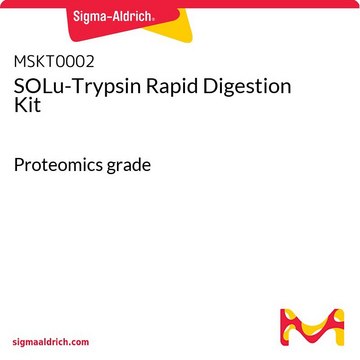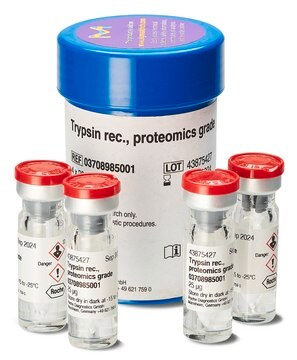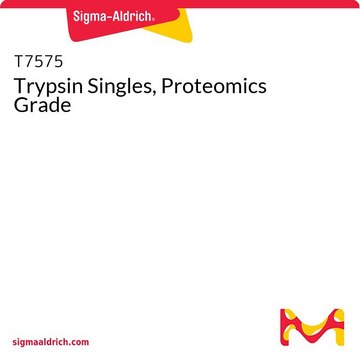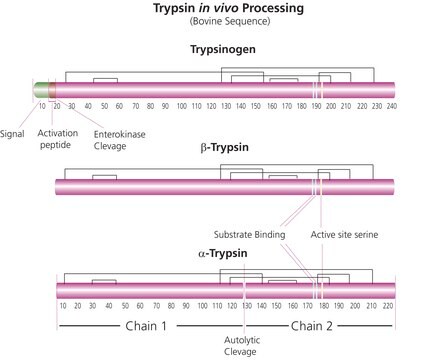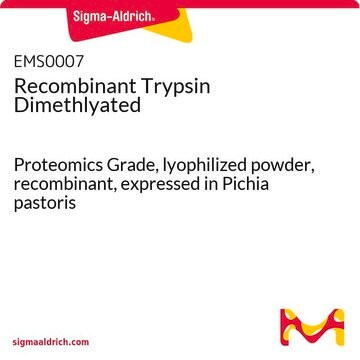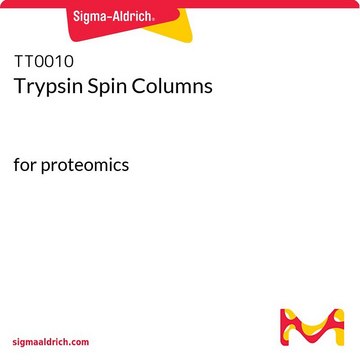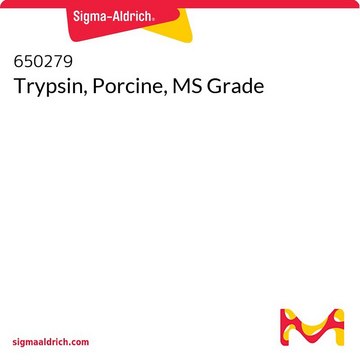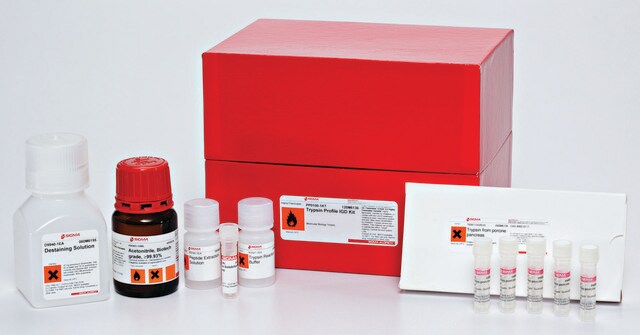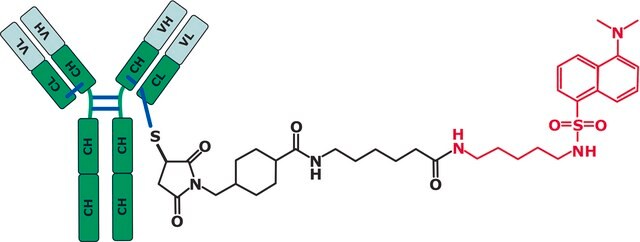EMS0004
SOLu-Trypsin
recombinant, expressed in Pichia pastoris, Proteomics Grade, liquid
Sinónimos:
Protein Digestion for Mass Spectrometry, Ready to Use Recombinant Trypsin for Protein Digestion in Mass Spectrometry, Recombinant Trypsin for Protein Digestion in Mass Spectrometry, Trypsin for Protein Digestion, rTrypsin
About This Item
Productos recomendados
Categorías relacionadas
Descripción general
Aplicación
- has been used to digest the gel pieces for mass spectrometry identification of active deubiquitnases (DUBs)
- has been used in trypsin sensitivity assay
- may be used for the digestion of wine proteins
Acciones bioquímicas o fisiológicas
- SOLu-Trypsin (EMS0004) is our exclusive, Advanced Proteomics Grade enzyme that is solution-stable for mass spectrometry.
- Designed to be stable in solution when refrigerated, SOLu-Trypsin can be used immediately without preparation.
- Other forms of trypsin require thawing or reconstitution, and must be discarded if not used immediately.
- SOLu-Trypsin allows excess product to be saved for future use, thus eliminating unnecessary waste and cost.
- It is formulated with a high-purity recombinant trypsin, free of chymotryptic activity, to ensure high fidelity digestion.
Características y beneficios
- Ready to use - no preparation, such as reconstitution or thawing, is required
- Fits seamlessly into established workflow - no need to modify protocols
- Eliminates waste - remains stable in the refrigerator after use so there is no need to discard excess product
- Recombinant, porcine sequence - no chymotryptic activity
- Stable for short-term use at room temperature in an autosampler or on a liquid handling robot
Código de clase de almacenamiento
10 - Combustible liquids
Clase de riesgo para el agua (WGK)
WGK 1
Punto de inflamabilidad (°F)
Not applicable
Punto de inflamabilidad (°C)
Not applicable
Elija entre una de las versiones más recientes:
¿Ya tiene este producto?
Encuentre la documentación para los productos que ha comprado recientemente en la Biblioteca de documentos.
Los clientes también vieron
Artículos
Evaluation of Recombinant, Chemically Treated Trypsin in Proteomics and Protein Characterization Assays
In this study, we developed a rapid trypsin digest kit that, at elevated temperatures, yielded reliable, reproducible results in less than 2 hours on a wide variety of substrates for mass spectrometry.
Nuestro equipo de científicos tiene experiencia en todas las áreas de investigación: Ciencias de la vida, Ciencia de los materiales, Síntesis química, Cromatografía, Analítica y muchas otras.
Póngase en contacto con el Servicio técnico